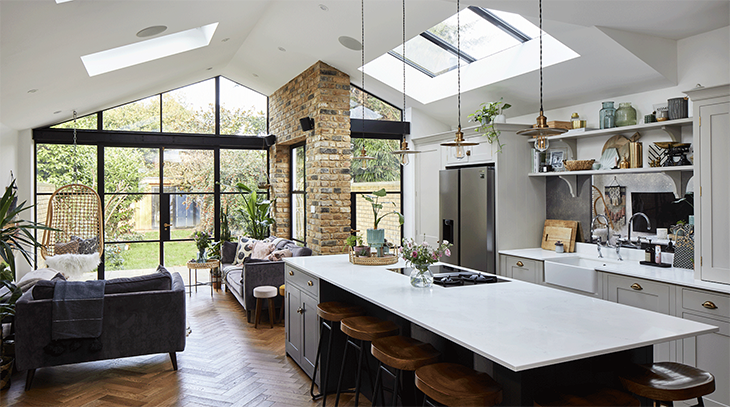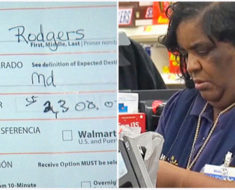
Real Homes
If you’re ready to apply for a fixed rate home loan, ensure you’ve done your research first! Approval of the loan is the first step in getting started on your dream home, but it’s not the only thing you should be aware of. Choosing the right mortgage lender and product can save you thousands of dollars over the life of your loan, but choosing incorrectly could cause you to run into some problems down the road (and even lose money!). So follow these steps to ensure you get started on your dream home as quickly and smoothly as possible!
Determine if you want a fixed rate loan
Before you get too deep into house-hunting, it’s essential to figure out how much of a mortgage you can afford. To do that, you must determine what kind of loan works best for your needs. For example, can you go with just a 15-year plan, or are 30 years (or more) better for your budget?
A lender will help you crunch those numbers and find an appropriate mortgage. Of course, the process will require some research, but when all is said and done, it should be relatively painless—and your new house is waiting.
Know what type of property it will be
By taking a little time to learn what property type is right for you, you can narrow your real estate search and make sure you’re going after something precious. To start, understand that there are five basic types of residential property: apartments, houses, townhouses/duplexes, condominiums/co-ops, and single-family homes. Knowing which one suits your needs will help a lot as you begin looking for properties.
Know how much you can afford
Do you have $500,000 in your savings account? If not, don’t plan to buy a $2 million house. There are plenty of buyers who fall in love with homes they can’t afford. Instead, ensure that your home budget includes homeowners insurance, property taxes, and mortgage payments. And be realistic about how much you spend on utilities and maintenance and whether it makes sense to have a yard or a pool.
Plug those numbers into our price estimator calculator and look for homes within your budget range. You can also seek out other factors that impact prices—like historic preservation districts or houses requiring much work—and narrow down what neighborhoods will fit within your budget.
Are you eligible?
Find out if you’re eligible for a government grant or mortgage assistance program that could save you thousands of dollars. In some cases, you may even be able to negotiate with your bank to lower your interest rate and monthly payments. The grants and programs vary by state, but many are available nationwide.
Find the right lender
When it comes time to apply for a fixed rate home loan, you’ll need to consider plenty of factors. Of course, different lenders will have different rates and requirements, so shopping around is always a good idea—that goes double when looking at one of these huge investments. In particular, you should look for an institution with low closing costs and no prepayment penalties.
The longer your loan term is, (the fewer payments required), and the lower your monthly payments will be (since interest compounds daily). So keep that in mind when you’re picking out your dream home!
Use online calculators
The internet is a treasure trove of resources for anyone starting with home ownership. By doing some research and plugging your numbers into an online calculator, you can figure out how much you can afford for a house and what size loan will get you there. An excellent place to start? The government’s official mortgage site. It not only has calculators but also in-depth information about all sorts of home financing topics.
With your knowledge, head off to apply for a fixed-rate home loan at a local lender or credit union so that your dream house might be in reach sooner than later!
Know if you need mortgage insurance
Most people think of a home purchase transaction as closing costs vs. a down payment. In reality, these are two categories of one significant cost associated with buying a home. When you buy a home, you’re responsible for paying both closing costs and your down payment in full. Closing costs (aka settlement fees) represent most of what buyers pay at closing—when you receive your deed and keys from your lender or title company after your loan has closed.
Know how long it will take to process your application
You must know how long it will take to get a loan and, therefore, how much time you have to save. Unfortunately, many variables are in play when applying for a mortgage—including your income, credit score, and down payment—so it’s impossible to say precisely how long your application will take. If you don’t have at least six months of savings, consider holding off on buying your home until you do.
You can also shop for better mortgage terms—some banks offer low-interest rates with more flexible terms than others. So keep an eye out and make sure your deal doesn’t start shrinking before your eyes.
What paperwork is needed?
Many people mistakenly think they need a mortgage—but plenty of other things can make up part of your down payment or closing costs, like origination fees, insurance, and property taxes. There’s no sense in putting yourself in a financial hole if it doesn’t have to be that way; once you decide what kind of home you want, check with your lender or real estate agent about which paperwork is necessary. (Hint: It may not be just a mortgage.) And don’t forget—you’ll also want flood insurance if your home is near water!
Closing costs – what are they?
You’ve got a budget, picked a design, and found your perfect lot; now it’s time to build your dream home. Before you know it, though, you realize some closing costs weren’t included in your original budget—what are they? Closing costs usually include real estate taxes, transfer taxes, appraisal fees, and loan origination fees for your lender. So make sure you run those numbers before putting down an earnest money deposit!
Conclusion
If you have good credit and a steady job, applying for a fixed rate home loan will put you one step closer to buying your dream home. Applying for a home loan can be stressful, but with some preparation, it’s not so bad! Getting everything in order before you start filling out paperwork should go much more smoothly. You’ll get your dream home in no time! Just remember to apply for a fixed-rate home loan, the sooner you use it, the sooner you’ll own your dream home!









































